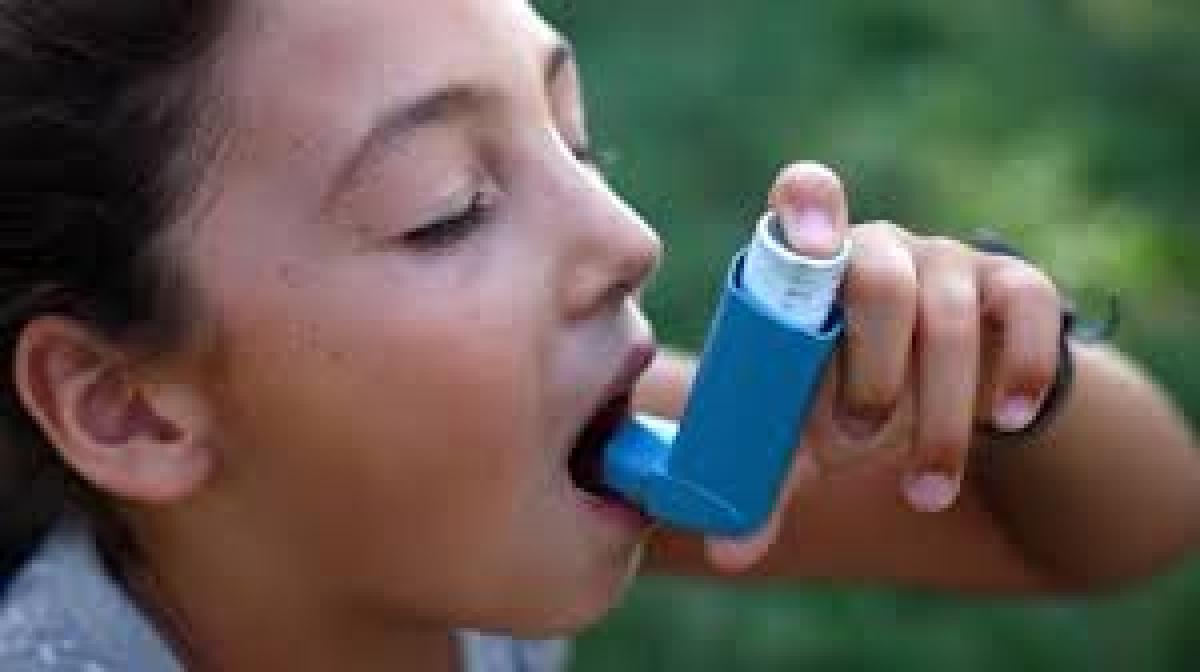Live
- Polling concludes in Maharashtra and Jharkhand Assembly elections
- Chhattisgarh CM Sai briefs HM Amit Shah on progress in Maoist-affected areas
- Bengal PDS case: ED seeks report on medical conditions of jailed former minister
- Siddharth's Romantic Drama Miss You Set to Hit Theaters on November 29
- India’s 1st AI data bank to boost national security launched
- Humbled to receive 'Key to the City of Georgetown', says PM Modi in Guyana
- 11 lakh BPL cards revoked, claims K’taka BJP
- Exit polls results indicated victory of the NDA government in Maharashtra and Jharkhand!
- Deputy CM Bhatti Vikramarka Reviews SC/ST Development Funds Implementation
- AP cabinet approves key decisions, check here
Just In

A recent study has linked respiratory tract infections in young children to an increased risk of asthma and worse lung function in later life.The research of 154,492 European children, which will be presented at the European Respiratory Society International Congress, found that those who had had upper respiratory infections, such as colds, sinusitis, laryngitis, tonsillitis, pharyngitis and otiti
A recent study has linked respiratory tract infections in young children to an increased risk of asthma and worse lung function in later life.The research of 154,492 European children, which will be presented at the European Respiratory Society International Congress, found that those who had had upper respiratory infections, such as colds, sinusitis, laryngitis, tonsillitis, pharyngitis and otitis, by the age of five years had a 1.5-fold increased risk of developing asthma in later life.
Children who had suffered from lower respiratory tract infections, such as bronchitis, bronchiolitis, pneumonia and general chest infections, had a two- to four-fold increased risk of developing asthma in later life and were also more likely to have worse lung function.
Dr Evelien van Meel (MD), from the Erasmus MC University Medical Centre, The Netherlands, will tell the congress: "These findings support the hypothesis that early-life respiratory tract infections may influence the development of respiratory illnesses in the longer term. In particular, lower respiratory tract infections in early life seem to have the greatest adverse effect on lung function and the risk of asthma."
"However, at this stage we cannot say for certain whether the relationship is causal. Further studies that measure lung function and wheezing from birth onwards are needed to explore whether the infections cause asthma and lower lung function, or whether wheezing and lower lung function may be predisposing these children to develop the infections. Studies that aim to prevent or treat respiratory tract infections at an early stage, perhaps by vaccination, would also help to shed light on this."
The researchers analysed data from 37 groups of children from several European countries [1] who were born between 1989 and 2013. Children were included in this meta-analysis if data were available on respiratory tract infections in early life (from age six months up to five years old), and childhood lung function and/or asthma. The length of follow-up varied between groups, but ranged from birth until the age of four to 15 years.
The researchers are planning further research. "Specifically, we want to study the roles played by antibiotics, paracetamol and exposure to second-hand smoke in the relationships between respiratory tract infections and lung function or asthma. Also, we would like to study what percentage of the association between respiratory tract infections and asthma can be explained by changes in lung function, and whether the associations change when we take early-life wheezing into account," she will conclude.

© 2024 Hyderabad Media House Limited/The Hans India. All rights reserved. Powered by hocalwire.com







